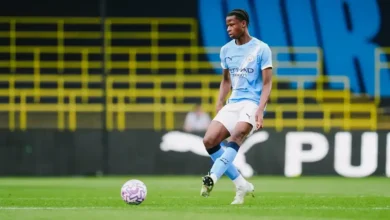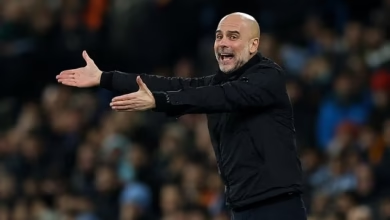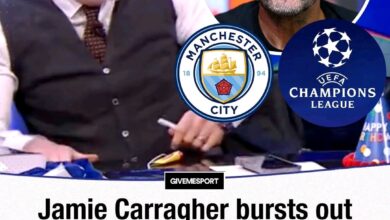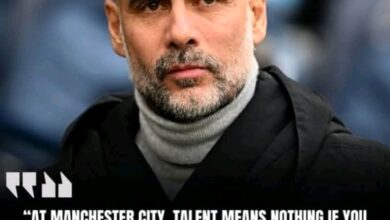Tottenham sign a new world-class coach

The football world is abuzz with anticipation as Thomas Frank prepares to make one of the most significant moves of his managerial career. The Danish tactician, who has spent nearly seven transformative years at Brentford, is set to take the reins at Tottenham Hotspur, marking a pivotal moment not just for his own trajectory but for the north London club’s ambitious future. However, Frank’s approach to this high-profile transition reveals a methodical, calculated mindset that could prove crucial to his success at Spurs
Frank’s commitment to thorough preparation isn’t merely professional courtesy—it’s a strategic imperative born from observing the volatile nature of modern football management. His emphasis on “due diligence” reflects a mature understanding of the complexities involved in stepping into a role at one of the Premier League’s most demanding clubs. This isn’t simply about accepting an offer; it’s about ensuring the fundamental alignment between his vision and the club’s infrastructure, expectations, and long-term objectives.
The 51-year-old manager’s approach stands in stark contrast to the impulsive decision-making that has characterized many managerial appointments in recent years. By prioritizing comprehensive evaluation over immediate gratification, Frank demonstrates the kind of strategic thinking that Tottenham desperately needs after years of managerial instability. His insistence on asking the “right questions” before committing suggests a leader who understands that success in football management extends far beyond tactical acumen.
Frank’s reference to Graham Potter’s experiences at Chelsea provides crucial context for his cautious approach. Potter’s tumultuous tenure at Stamford Bridge serves as a cautionary tale about the importance of understanding the political and operational dynamics of a club before accepting a position. Potter’s struggles weren’t necessarily due to tactical inadequacy but rather stemmed from a misalignment between his methods and the club’s immediate expectations, ownership philosophy, and structural challenges.
This awareness of Potter’s difficulties indicates that Frank has been studying the Premier League landscape carefully, analyzing not just the successful appointments but also the failures. Such analytical depth suggests that Frank views his potential move to Tottenham through a lens of long-term sustainability rather than short-term opportunity. He understands that managerial success at the highest level requires more than just coaching ability—it demands strategic positioning within the club’s ecosystem.
Perhaps the most critical aspect of Frank’s evaluation process involves understanding Daniel Levy’s approach to club management. Levy’s 24-year tenure at Tottenham has been marked by both significant achievements and notable frustrations. The chairman’s track record of hiring and dismissing managers—with Ange Postecoglou being the 13th departure during Levy’s stewardship—creates a complex dynamic that any incoming manager must navigate carefully.
Frank’s acknowledgment of Sir Alex Ferguson’s advice about “picking your chairman” reveals a sophisticated understanding of football hierarchy. While Ferguson had the luxury of choice due to his unprecedented success, Frank recognizes that most managers operate within more constrained circumstances. This realistic assessment of his own position in the managerial market demonstrates both humility and strategic awareness.
The relationship between Frank and Levy will likely define the success or failure of this appointment. Levy’s reputation for being hands-on in football operations means that Frank must establish clear boundaries and expectations from the outset. The questions Frank plans to ask will likely focus on decision-making authority, transfer policy, player development philosophy, and the timeline for achieving success
Frank’s success at Brentford has been built on a foundation of stability, clear communication, and realistic expectations. The Bees’ rise from the Championship to establishing themselves as a competitive Premier League side represents one of modern football’s most impressive organizational achievements. However, the transition to Tottenham presents fundamentally different challenges that will test Frank’s adaptability.
At Brentford, Frank operated within a well-defined structure where every signing, every tactical decision, and every development program was part of a coherent long-term strategy. The club’s data-driven approach to recruitment and their focus on maximizing value from limited resources created an environment where Frank could implement his ideas without the pressure of immediate results or massive financial expectations.
Tottenham, by contrast, operates in a different stratosphere of expectation and scrutiny. The club’s supporters, having endured years of near-misses and managerial changes, demand not just progress but tangible success. The pressure to deliver immediate results while building for the future creates a delicate balancing act that has derailed many promising managers
One of Frank’s key evaluation criteria involves understanding Tottenham’s financial structure and transfer policy. His question about whether he can “get the players in and out you want” cuts to the heart of modern football management. At Brentford, Frank worked within clearly defined financial parameters, but these constraints also provided clarity about what was possible.
Tottenham’s financial situation is more complex, with significant revenue streams but also substantial commitments. The club’s approach to transfers has often been criticized for being reactive rather than proactive, and Frank will need assurances about his role in shaping the squad. The ability to make decisive moves in the transfer market, both in terms of acquisitions and departures, will be crucial to implementing his tactical vision.
The question of “low hanging fruit” is particularly relevant to Tottenham’s current situation. The squad contains players of undoubted quality, but extracting consistent performance from them has proven challenging for previous managers. Frank’s ability to identify immediate improvements while building toward longer-term objectives will be critical to his early success.
The pressure at Tottenham is fundamentally different from what Frank experienced at Brentford. While the Bees could celebrate survival and gradual improvement, Tottenham’s supporters expect European qualification, trophy challenges, and performances that reflect the club’s status and investment. Managing these expectations while implementing his tactical philosophy will require careful communication and realistic goal-setting.
Frank’s success at Brentford was built on incremental progress and patient development. However, the timeline for success at Tottenham is compressed, with supporters and media scrutinizing every decision and result. The club’s history of managerial changes suggests that patience is often in short supply, particularly when results don’t match expectations.
The tactical challenges facing Frank at Tottenham are significant but not insurmountable. His work at Brentford demonstrated an ability to adapt his approach based on available resources and opposition quality. The direct, physical style that served Brentford well in their Premier League establishment may need refinement to suit Tottenham’s personnel and objectives.
The current Tottenham squad contains players capable of playing various tactical systems, but they require clear direction and consistent application. Frank’s ability to identify the most effective approach for his available players while gradually implementing his preferred style will be crucial to early success. The challenge lies in balancing immediate results with long-term tactical development.
Frank’s communication skills, evident in his thoughtful analysis of the managerial landscape, will be essential in his Tottenham role. The ability to articulate his vision clearly to players, supporters, and media represents a crucial asset in managing the intense scrutiny that accompanies any Tottenham appointment.
The cultural integration process will also be significant. Frank’s Danish background and his experience in English football through Brentford provide a unique perspective that could benefit Tottenham. His understanding of both the technical aspects of the game and the emotional demands of English football culture positions him well for this challenge.
Frank’s methodical approach to this career move reflects broader changes in football management philosophy. The days of managers accepting positions based solely on prestige or financial incentives are giving way to more strategic career planning. Frank’s emphasis on alignment between personal philosophy and institutional structure represents a more mature approach to career development.
This evolution in managerial thinking benefits both individuals and clubs. When managers and clubs share clear expectations and aligned objectives, the likelihood of success increases significantly. Frank’s insistence on thorough evaluation before commitment suggests a partnership approach that could prove beneficial for all parties involved
Thomas Frank’s impending move to Tottenham represents more than just another managerial appointment—it embodies a new approach to career management in elite football. His commitment to asking the right questions, understanding the institutional dynamics, and ensuring alignment between vision and reality demonstrates the kind of strategic thinking that modern football demands.
The success of this appointment will ultimately depend on the answers Frank receives to his crucial questions and how well both parties manage the transition process. If Frank can establish the necessary working relationships, secure the required support systems, and adapt his proven methods to Tottenham’s unique environment, this move could represent a transformative moment for both his career and the club’s trajectory.
The football world will be watching closely as Frank navigates this transition, not just for the immediate results but for what it reveals about the evolving relationship between modern managers and the clubs they serve. His methodical approach may well set a new standard for how such career moves should be evaluated and executed in the contemporary game.














